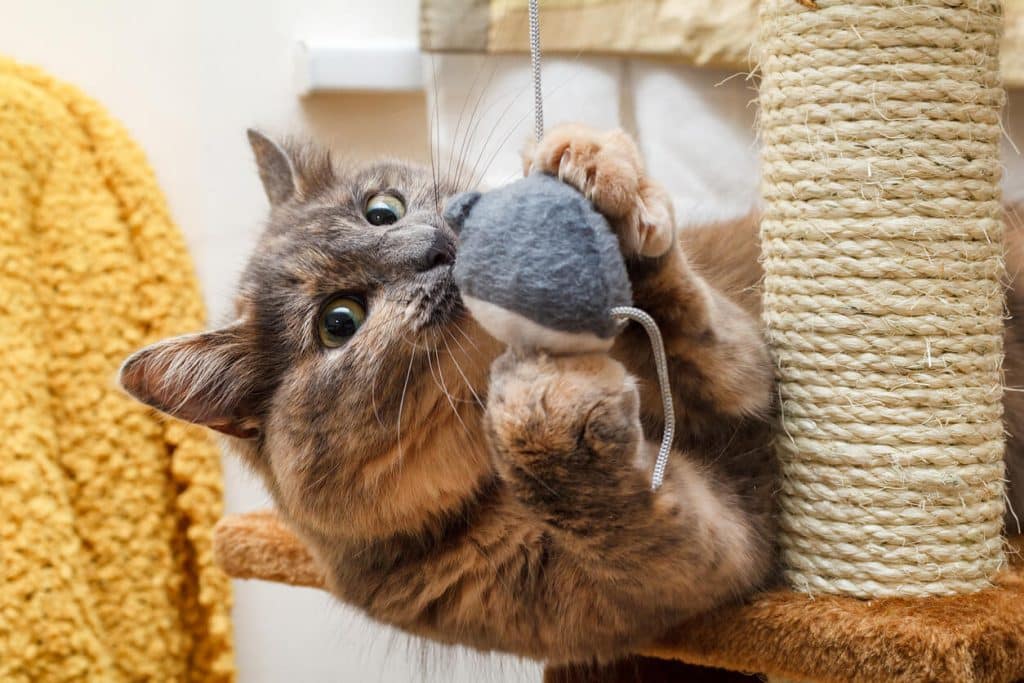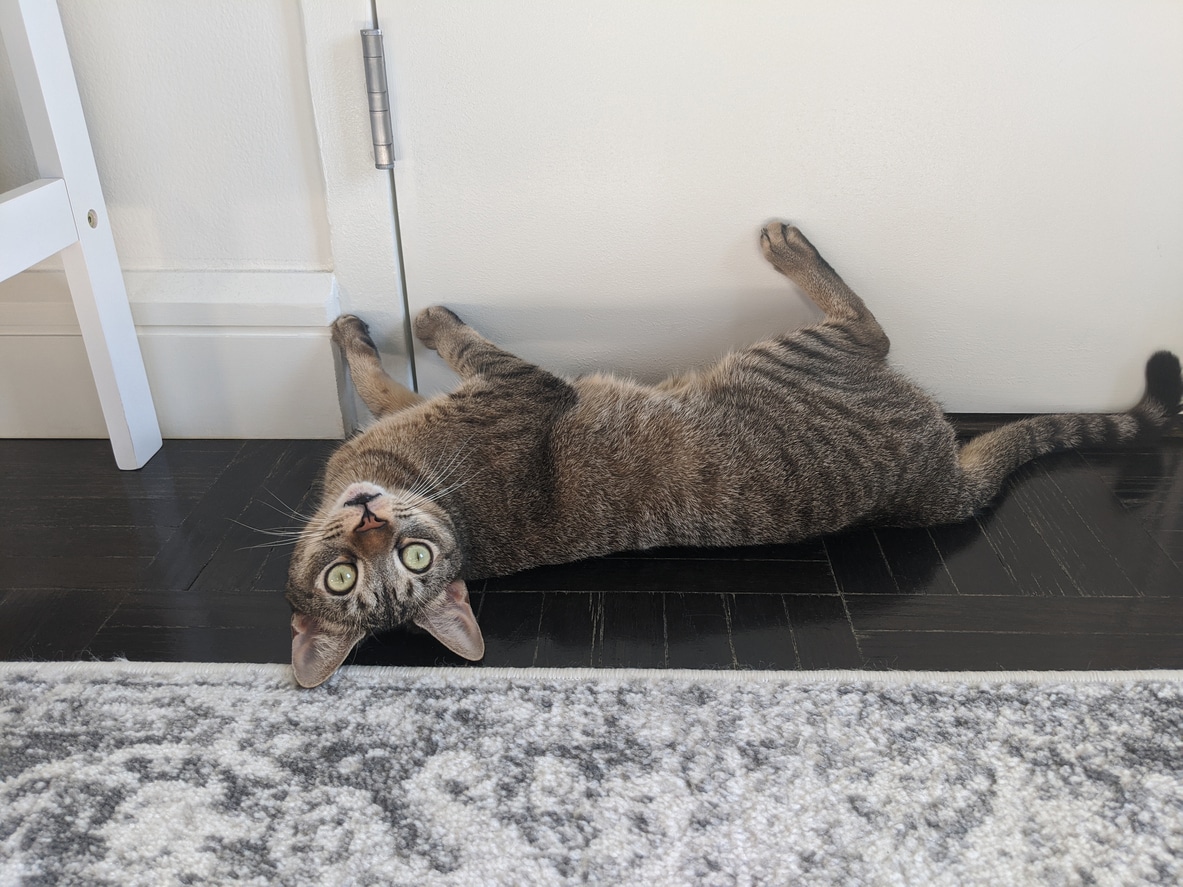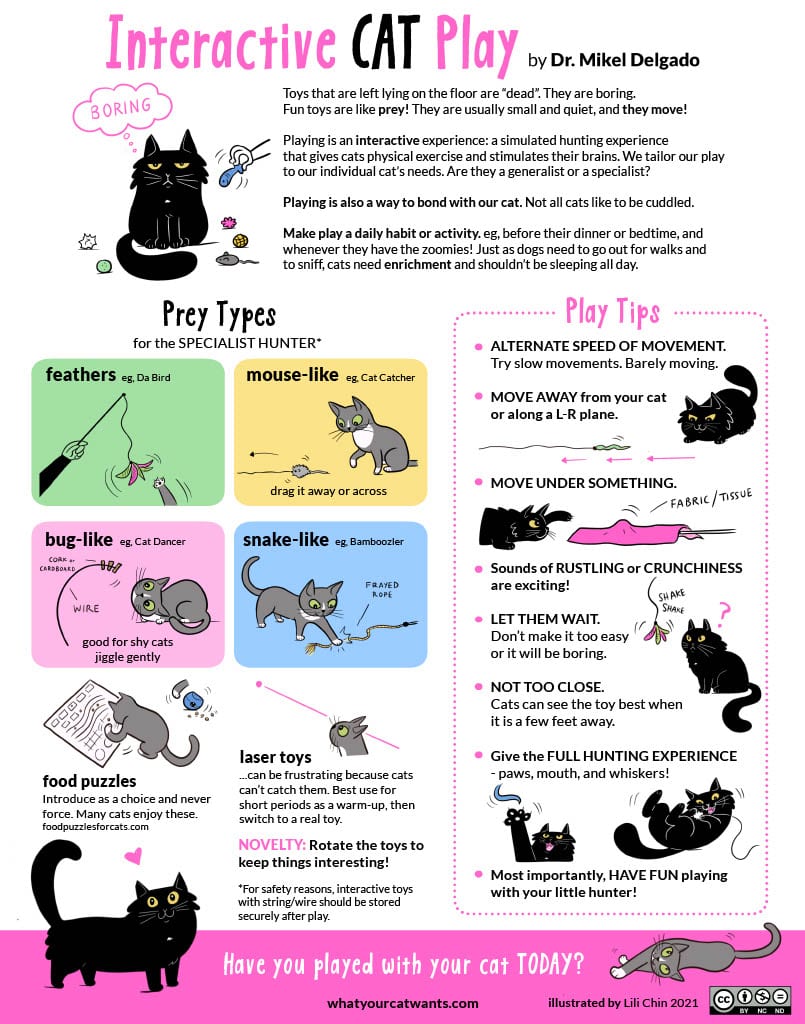- Not a substitute for professional veterinary help.
Most cat owners have likely spotted a paw poking under the closed bathroom or bedroom door. Is this an attention-seeking activity, or is something else going on? We took a look at this common kitty conduct.
Understanding Feline Behavior
Cats are naturally playful and curious creatures. They both entertain and annoy us with their antics, from squeezing into boxes that are clearly too small for them or knocking random items off shelves and end tables. They grab at your ankles when you walk by in an effort to engage you in their game.
Regular play is important for a kitty’s health and well-being. It helps keep their bodies in good condition, plus helps them calm down so they’re less susceptible to boredom, destructive behavior, and excessive meowing.
Cats are innately inquisitive. They need to know what’s happening in their environment. That’s due to basic survival instincts, says Dr. Mikel Delgado, Rover’s resident cat behaviorist.
In the wild, cats are both predator and prey, so they must always be aware of their surroundings. They use observation and investigation as tools for survival.

iStock/Brycia James
Because they are curious, cats are always learning.
“Real curiosity is all about persistently meddling with the world,” reported Philanthropist and researcher Stephen Grand, Ph.D.
And that meddling may include the paws under the door.
Cats are built for exploration, from eyes that can see in the dark, to ears that can hear the rumble of thunder before you do, to the nose that has 40 times more olfactory receptors than humans.
Even a cat’s whiskers help them explore their surroundings. They use them to detect vibrations and changes in air currents, and because they are approximately as wide as their bodies, whiskers help them navigate small spaces.
https://www.instagram.com/p/CidVmjrDWWJ/
The Appeal of Playing Under the Door
There are a few common scenarios where cats will poke their paws under doors.
“One is that the door is closed and there is a human on the other side,” said Delgado.
Your cat may just want to be with you and want attention.
Another other reason cats often do this is their instinctual need to hunt.
“Cats are naturally attracted to crevices and things that resemble mouse holes or areas that prey may hide,” Delgado said. “Cats are naturally driven to explore these areas how best they can—with their paws.”

iStock/Socreative
That hunting instinct may include poking a paw under a door in an effort to see what they might grab on the other side.
A pair of cats may play with each other on opposite sides of a door, pawing at each other or batting a toy back and forth.
A common method of introducing a new cat to a resident cat is to let them see and smell each other under a closed door. This can progress to feeding each cat on either side of the door so they’ll not only smell each other but have a positive experience while near each other.
Cats are also territorial. When you bring a new cat home from the shelter, your kitty will walk from room to room, examining every nook and cranny, getting the lay of the land and claiming his kingdom. A closed door may upset him because he can’t access every part of the space. He may meow at a closed door for this reason.
Delgado said in some cases, a cat may be experiencing separation anxiety when they are separated from you.
“Some kitties really just hate being closed away from their person,” she said.

iStock/Renata Tyburczy
Environmental Factors
The bathroom is a prime location for your kitty’s under-door play. This could be because cats tend to follow their people into the bathroom.
If you normally allow your cat to come into the bathroom when you’re showering or getting ready for your day, then suddenly the door is closed and they are locked out, chances are your cat will paw under the door and cry to be let in.
https://www.instagram.com/p/CzoGpfOrZG6/
Cats are creatures of habit, and they know their humans regularly go into the bathroom. So, it follows that they want to go in there as well. And if you have reinforced the activity by giving attention and pets, they will quickly learn how to get that attention from you.
Another aspect of the bathroom is that it’s full of fun “toys.” From the shower curtain to the fuzzy bathmat and that stray piece of tissue, there are endless opportunities for play and mischief.
In addition, many interesting scents emanate from the bathroom. Cats have a powerful sense of smell, roughly 14 times better than ours. They use it to detect approaching predators, and for sniffing out their prey. They use scent glands on their paws, face, hindquarters and tail to release pheromones. The bathroom is a prime location for face rubbing and hind end bumping.
The bedroom door may also be a target for pawing, especially if you normally let your cat sleep with you and suddenly the door is closed.
https://www.instagram.com/p/CuqKHFRp1mU/
Tips for Cat Owners
When cats play under doors, they’re not doing it to be naughty, they’re simply following their instincts to investigate their space or to try to engage with their humans.
If your cat is showing signs of separation anxiety, including excessive vocalization, litter box avoidance, or self-injurious behavior such as overgrooming, Delgado advises talking with your veterinarian and getting a referral to a behavior professional if necessary.
She notes that separation anxiety is diagnosed based on what your cat does when they are separated from you, not on what they do when they are with you.
If you have a lot of rules about what rooms your cat has access to, it could cause stress for them.
If that’s the case, she recommends first assessing why you are confining your cat or blocking off rooms and addressing that concern separately.
“For example, if you don’t let your cat in your bedroom because they might pee on your bed, you should address the litter box avoidance with a professional to reduce the likelihood that your cat will pee on your bed,” she said.
If your cat keeps you awake at night, you can incorporate various forms of behavior and environmental modification.
“Including interactive play, exercise, and changes to their feeding schedule to help them sleep through the night, instead of locking them out of your bedroom,” Delgado advises.
In her upcoming book, “Play With Your Cat!” Delgado explains why cat parents should regularly play with their kitties and offers techniques on how to engage cats in play. She also addresses problematic cat behaviors.

Courtesy TK Delgado
Conclusion
For many cats, pawing under the door is natural, playful behavior. If becomes a problem, it’s fairly simple to create a cat-friendly environment that satisfies their innate hunting instincts and need for exploration. Interactive toys and activities can help them redirect their curiosity and let off some steam.
Interested in services on Rover?
Dog Boarding | Pet Sitting | Dog Walking | Doggy Day Care | House Sitting | Dog Training


